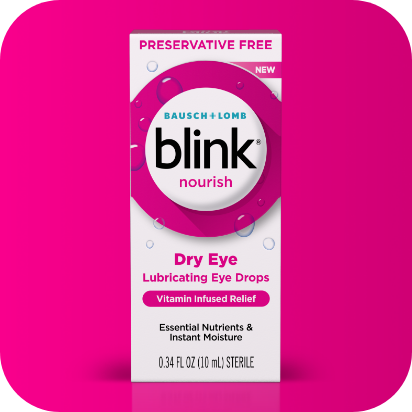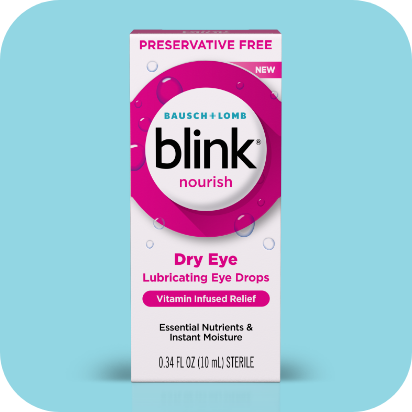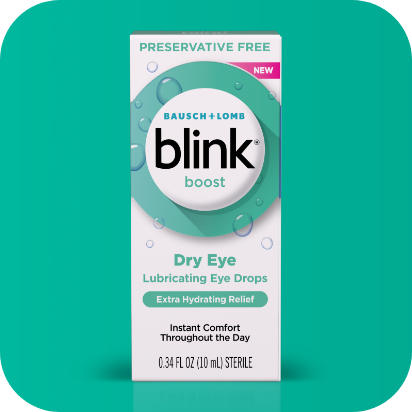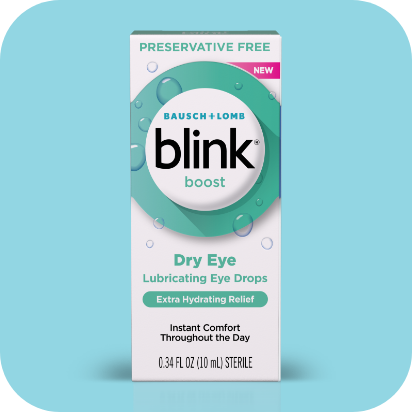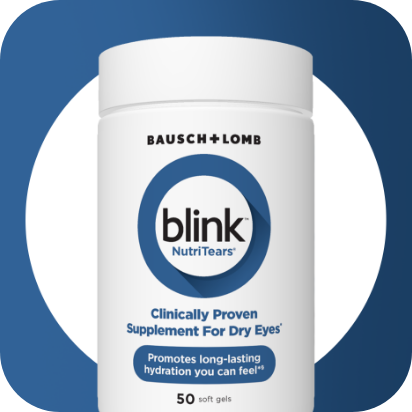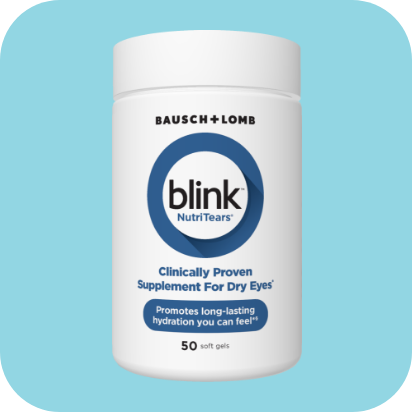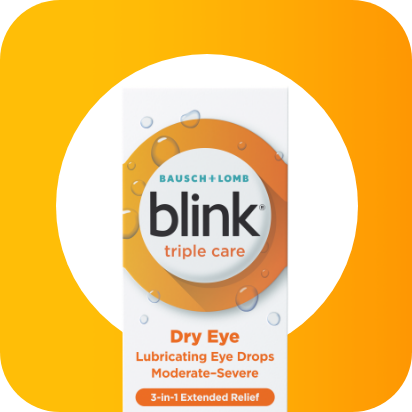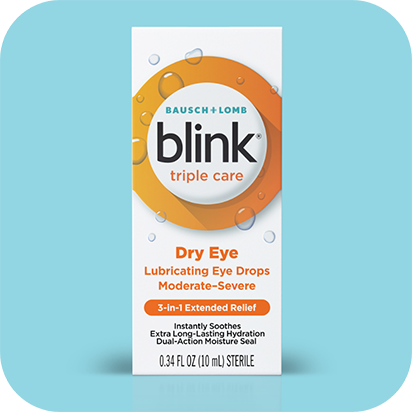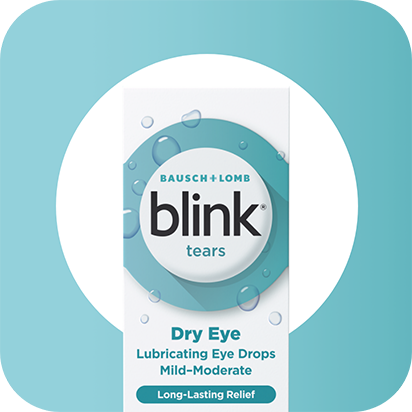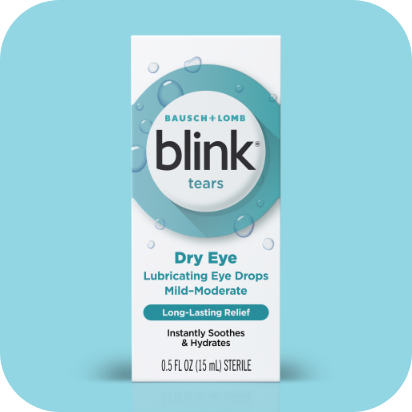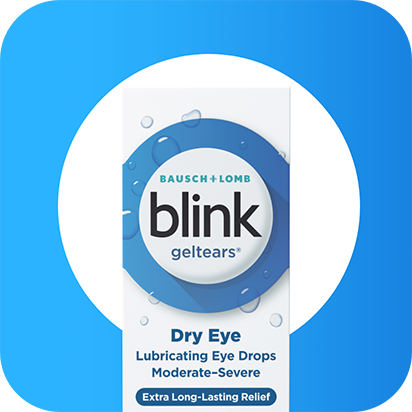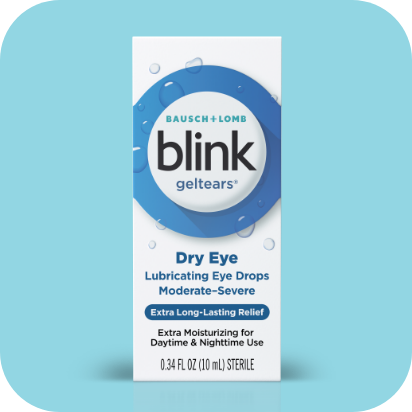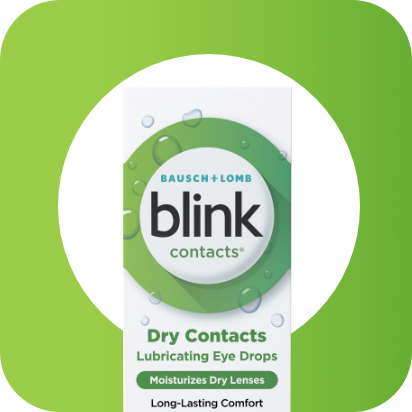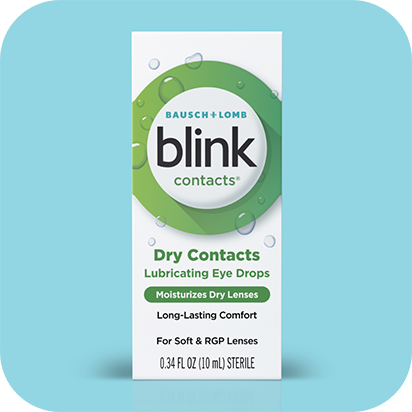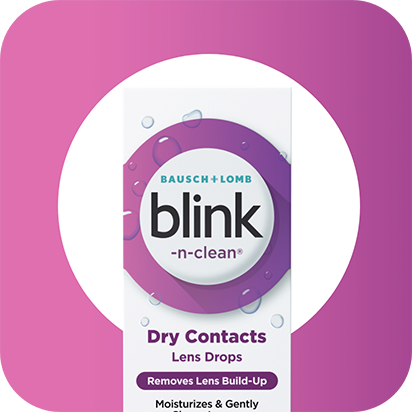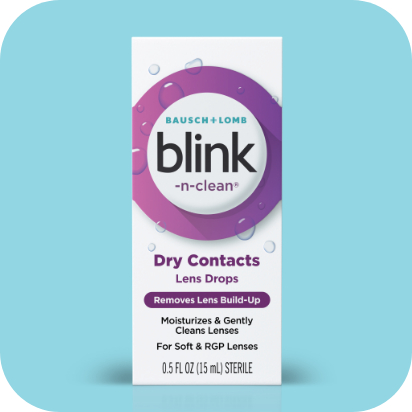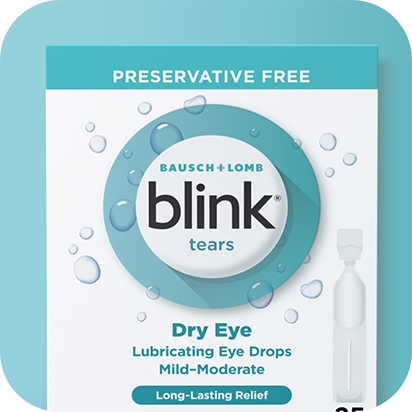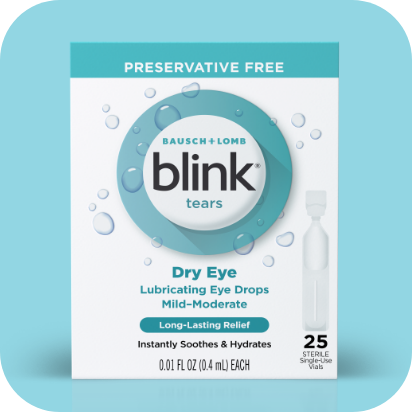What is Dry Eye?
Dry eye occurs when you don’t have enough tears to keep the eyes properly lubricated and nourished. You may experience symptoms of dry eye in one eye, or in both eyes1.
Do you wear contacts? Click here.
There are two types of dry eye:
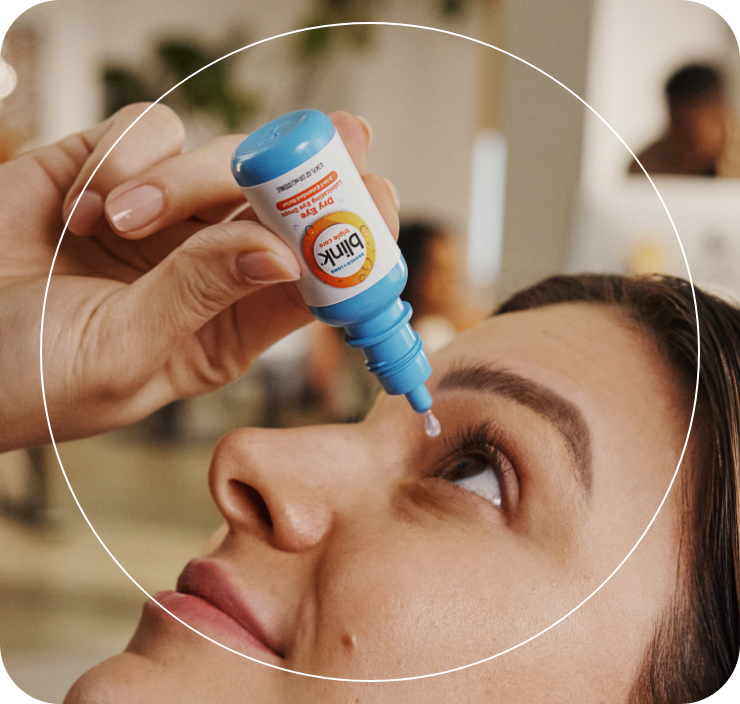
There are two types of dry eye:
1. Aqueous Deficient:
Your eyes simply aren’t making enough tears
2. Evaporative:
Your eyes are making poor quality tears, and they’re evaporating too quickly
Over time, if left untreated, dry eye symptoms can impact your eye health and your vision. And, though dry eye is more common as you age, it can affect anyone depending on biology, physiology, environment, and lifestyle1.
1. https://www.aoa.org/healthy-eyes/eye-and-vision-conditions/dry-eye
Most Common Dry Eye Symptoms
While dry eye is uncomfortable and can feel different to different people, some common symptoms may include:
-
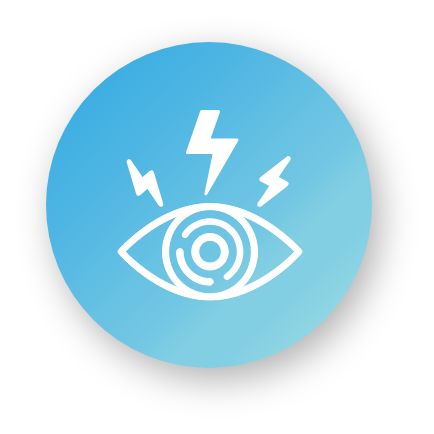
Pain
-

Dryness
-
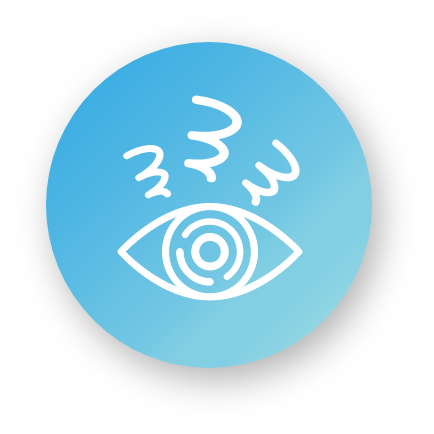
Irritation
-
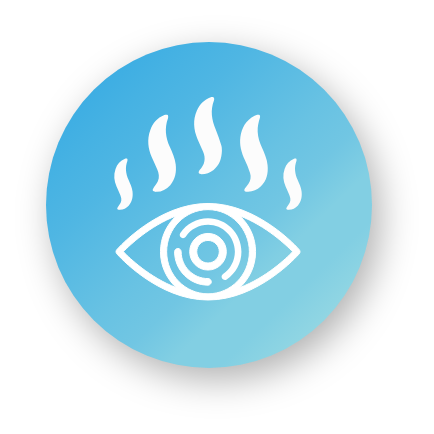
Burning
-
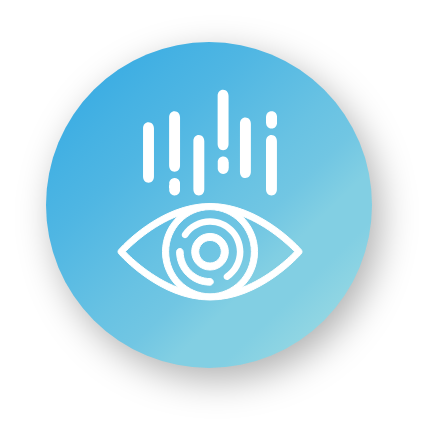
Itching
-
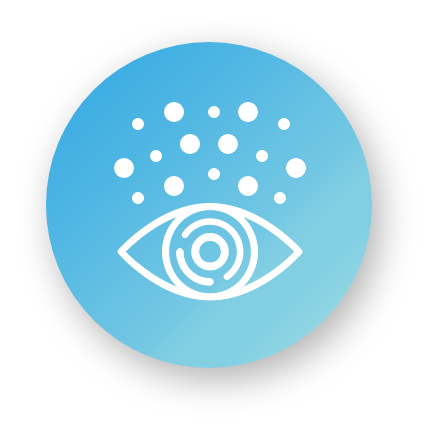
Grittiness
-

Foreign body feeling
-
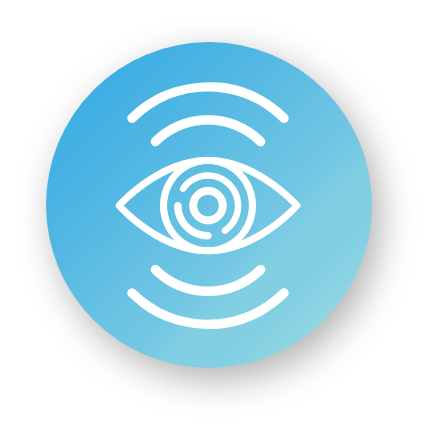
Excessive blinking
-
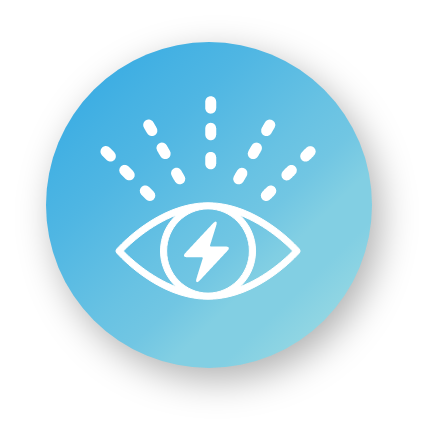
Light sensitivity
-
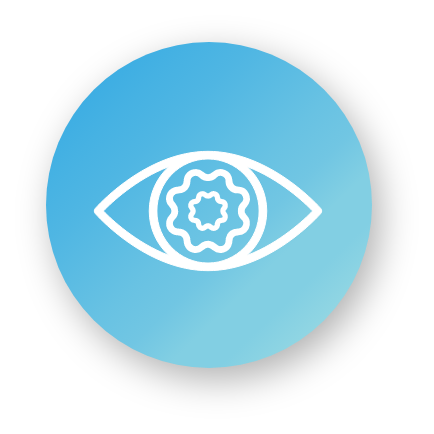
Blurry vision
You’re not alone.
Dry eye is a significant global problem affecting more than 344 million people worldwide, and more than 30 million people in the US alone2.


Did You Know?
More screen time can mean less blinking, in some cases 65% less than the average number of blinks, contributing to dry eye symptoms.

Have Questions About Dry Eye? Talk to Your Eye Doctor
If your eyes feel uncomfortable, or you have trouble seeing and the tips above haven’t helped, make an appointment with your eye doctor. No issue is too small to discuss, especially since your eyes are what connect you to the world.
When you talk to your eye doctor, don’t forget to ask about any dry eye symptoms you’ve been experiencing. If you remember beforehand, it might help to take notes when your eyes aren’t feeling quite right so you can give examples.
Some additional questions to ask could be:
- - What is causing my eyes to feel this way?
- - Do you have any suggestions for finding relief?
- - Are there any risks if I wait it out and don’t do anything?
- - Which over-the-counter eye drops could help me?
Relief With Every Blink
Find long-lasting relief that best fit your dry eyes or contacts.

